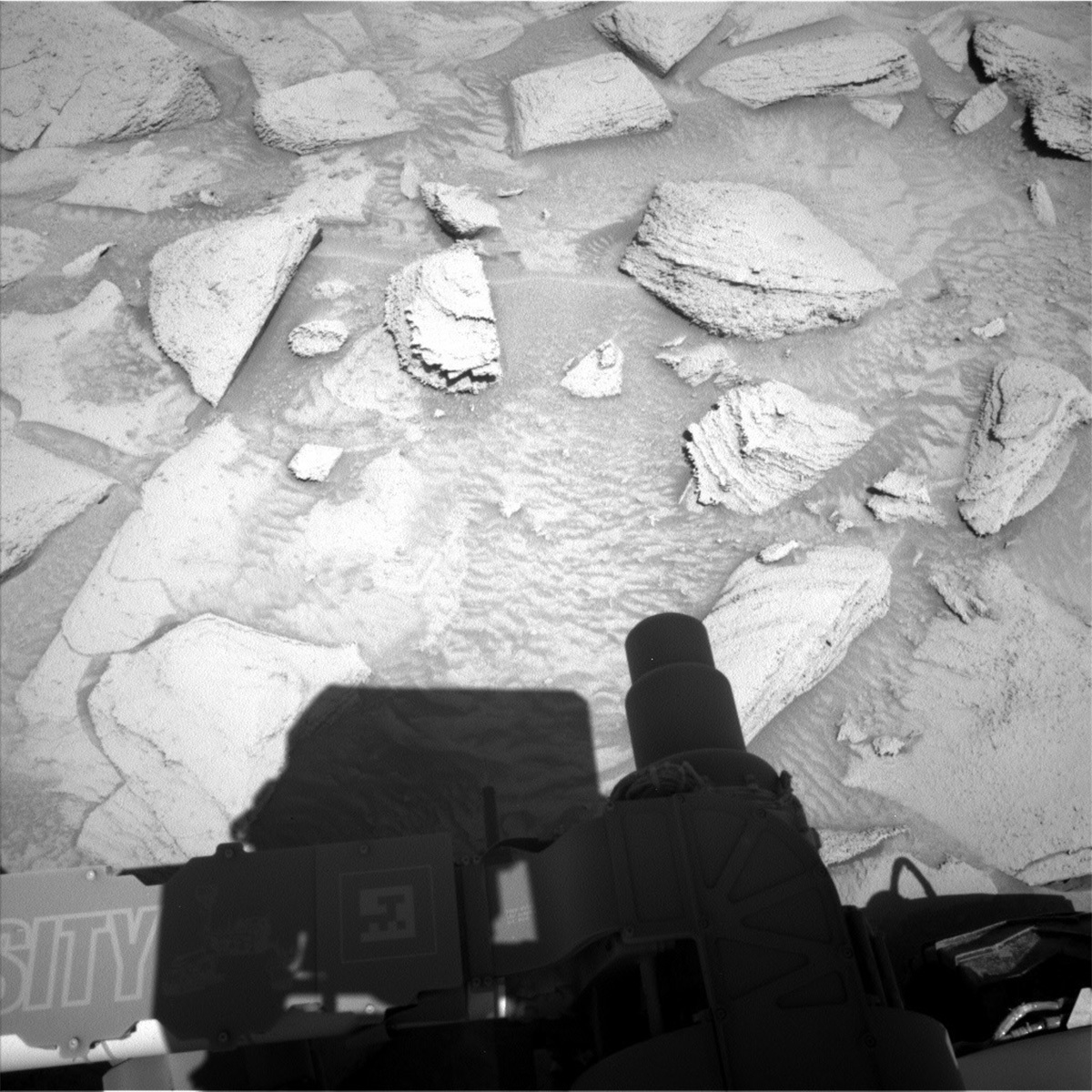Our weekend drive got us into a good position to attempt to examine a block we might attempt to drill. We don't dive right in; we have to make sure this is in fact where we want to drill. This means contact science on "Ubajara," which you can see on the left of the image above. The GEO team spent some time picking a special target name, which involved looking at pictures of national parks. Ubajara (a national park in Brazil), it was decided, is a great choice – it's a bit more lush and green than Gale Crater, but the mountains and canyons are reminders of the canyon Curiosity just climbed out of.
We had planned a pretty typical drill sol 1, with MAHLI and APXS on the drill target, and a brush with the dust removal tool, but then learned that we will not be able to use the DRT until we get more images of this target. Luckily, we were still able to move forward with the other activities in the plan and still prepare to examine this block to decide if we want to drill it in the future.
The plan starts with a couple ENV activities – looking back towards the crater rim to measure the amount of dust in the atmosphere, and then scanning for dust devils. Then Mastcam and ChemCam will both image Ubajara in advance of the contact science. After contact science, ENV has afternoon observations to try to catch some clouds.
The next sol again starts with ENV – this time with targeted cloud and dust devil movies. Then ChemCam has a LIBS observation of "Bwesse Kiiki," and a long distance RMI mosaic on a ridge to the north. Mastcam is also documenting the ChemCam LIBS target and doing multispectral imaging on the layered block "Ekeni."
Written by Alex Innanen
from NASA Mars Rover Curiosity: Mission Updates https://ift.tt/JB2Wp64

Comments
Post a Comment